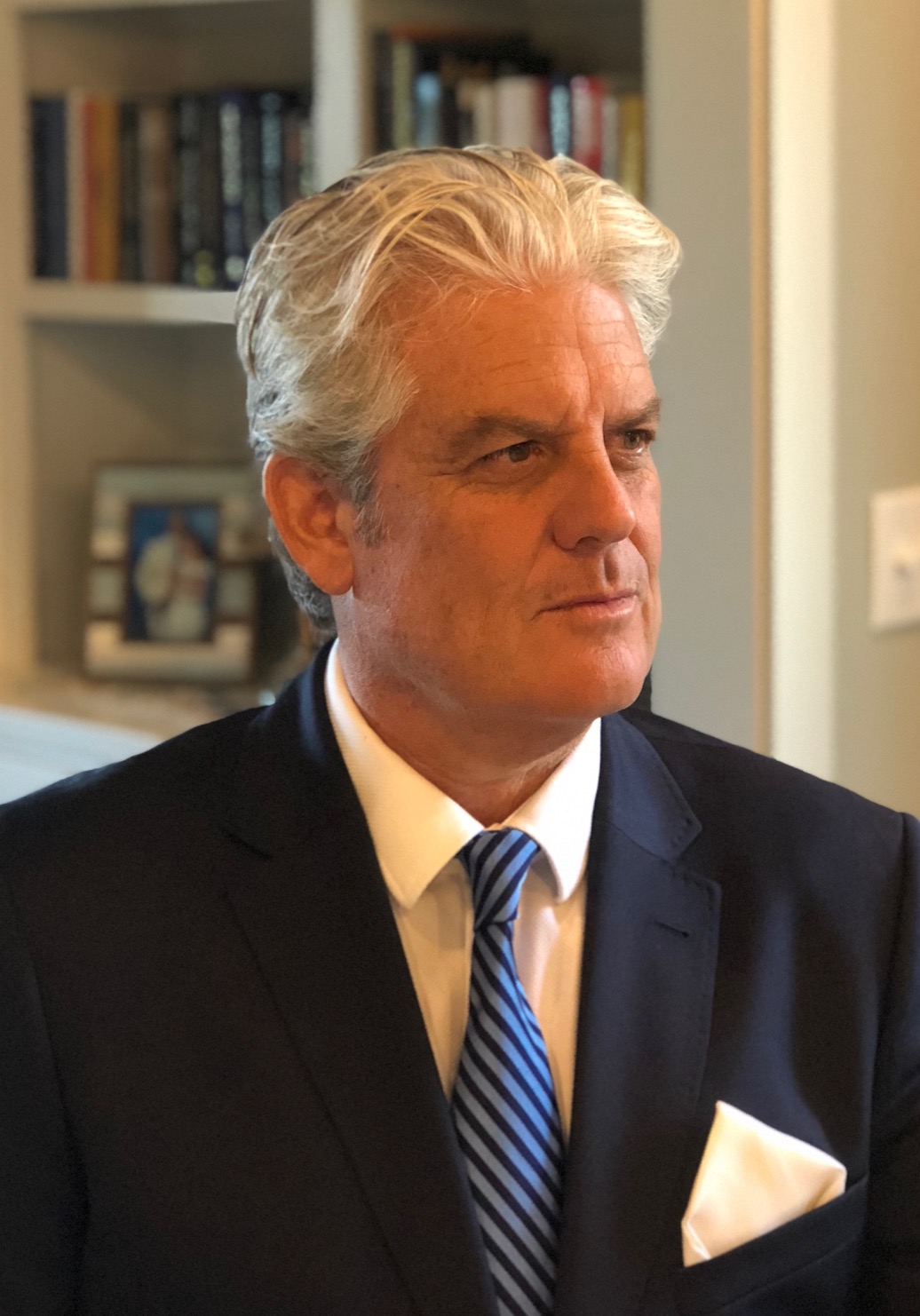From the CEO – February 2019
Dear Clients,

Chief Executive
The next stage in the Venezuelan power crisis continues to unfold in line with our model forecasts.
Given that PRS has factored a 75% likelihood of a civilian-military regime in place within the next year, and that – as I mentioned last month – what we are seeing unfold is the process of a ‘slow-coup’ against President Maduro, the most recent round of US sanctions is thus not surprising. Several state governors said to be close to Maduro have now had their assets frozen by the US administration, adding to the list of some 70 others that have suffered the same fate.
The US has urged its allies to adopt similar measures and said it would continue to foster support programs for Venezuela’s refugees and identify new border outlets for food stockpiles.
However, one item that seems to be downplayed – and for good reason – is the use of force to oust Maduro. Parts of the Venezuelan opposition have called for violence against the regime but the consequences could be grave and politically unpalatable. The military option would do little to foster the delicate consensus that has been forged among the 50 nations to support a new regime for Venezuela under the interim presidency of Juan Guaidó. The effectiveness of troops on Venezuela could also be complicated by the presence of paramilitaries and guerrilla groups loyal to the regime. There is also the small detail of the presidential elections next year, and it’s not clear whether such a foray – especially given the US’ rather blemished record of intervention in Latin America – would sit well with American voters, apart from pockets of support in Florida.
It should also be noted that those hoping for a quick departure of Maduro might wish to look at Ortega in Nicaragua, who has been able to withstand considerable pressure for his removal – something that the ‘talking-heads and geopolitical chat therapists’ were all-but-convinced was inevitable last summer. While the parallels between Ortega and Maduro should not be drawn too closely, both have considerable sway over their respective state institutions. In Maduro’s case, Hugo Chavez, the president’s predecessor, did a considerably effective job at weakening Venezuela’s most powerful institutions, from the judiciary to the military, stacking them with loyalists. To be sure, the National Assembly in Venezuela is controlled by the opposition, but it has been held in check by Venezuela’s Supreme Court and the Electoral Council.
As long as US and international pressure continues to be effective – and sanctions and humanitarian aid are appropriate measures to pressure Maduro to leave – the present regime will eventually come to an end. To borrow slightly from TS Eliot’s oft-cited phrase, the question thus remains whether that point comes with a bang or a whimper.
Elsewhere in India, the results of three state elections held in December suggest that Prime Minister Narendra Modi and his Bharatiya Janata Party (BJP) could have a real fight on their hands when they square off against a revitalized Indian National Congress (INC) at a national election that will be held in stages during April and May 2019. The once-dominant INC suffered a crushing defeat in the 2014 elections and enduring a string of losses in state elections held over the last two years. However, the triple win for the party in late 2018—a nail-biter in Madhya Pradesh and comfortable victories in Chhattisgarh and Rajasthan—made clear that the BJP no longer enjoys the confidence of Indians who rely on agriculture for their livelihoods, a potentially fatal political liability.
The potential ace up the BJP’s sleeve is its role as a champion of Hindu nationalism, a popular sentiment that has long been exploited by Modi’s party for political gain, sometimes with deadly consequences. As such, the recent worrisome heightening of tensions between India and Pakistan could generate intense nationalist sentiment that benefits the BJP and its allies as voters go to the polls in April and May.
Over in the generally benign and peaceable kingdom of Canada, Prime Minister Justin Trudeau faces the most significant scandal of his political career as his former attorney-general appears ready to testify whether she was inappropriately pressured by the prime minister’s office to avoid prosecuting SNC Lavelin, the Canadian multinational engineering firm.
Trudeau has been on his heels since it was reported earlier this month that either he or members of his staff pressured Jody Wilson-Raybould, the attorney-general at the time, to avoid criminal prosecution of the company over allegations of corruption involving government contracts in Libya. Trudeau’s opponents say the move constitutes an obstruction of justice and are out for blood just months before the country goes to the polls.
And in South Africa, while it looks all-but-certain that the African National Congress will romp to victory in the May 8 elections to renew the National Assembly and provincial legislatures, nothing should be taken for granted. President Cyril Ramaphosa is faced with a struggling economy, sky-high unemployment levels, and pressure to remove two of his cabinet members, the minister of environmental affairs, Nomvula Mokonyane, and the ANC chair and mineral resources minister, Gwede Mantashe, for alleged bribe-taking from the state utility Bosasa under Zuma’s watch.
Despite this, the polling numbers are instructive: most surveys point to an easy victory for ANC given the presence of a weak and disunited opposition, where there are only two serious challengers that came second and third respectively last time around. The Democratic Alliance (DA), led by Mmusi Maimane, and Julius Malema’s Economic Freedom Fighters (EFF), although even combining their potential votes barely comes close to half the projected share for ANC.
Turning to the ICRG ratings this month, several trends are worth noting. In Europe, spurts of higher consumer confidence have been detected in France, Germany, Ireland, Lithuania, and Slovenia. Foreign exchange reserves in many countries have reached multi-year highs, presumably given a less-aggressive strengthening of the US dollar and slowing import demand.
Little change has occurred over the past month in the Middle East, although the risk profiles of Libya and Israel have improved considerably.
In the Americas, a similar outbreak of improved risk is evident in Ecuador and El Salvador, most notably.
In Asia and Africa, some 25 countries together had their risk profiles adjusted, affecting 35 individual risk metrics.
Needless to say, the geopolitical risk world continues to be anything but stagnant!
Clients and friends should remember that PRS is close to rolling out its new Preferred Client Services, which will include early monthly data releases, a la carte selection of PRS risk products, and much more. The service will promote client flexibility and added responsiveness from PRS. Stay tuned for more details in the coming weeks and contact our office should more information be required.
PRS continues to feature prominently in the media, commenting on topics ranging from Mozambique’s commodity sector to the pricing of Italian bonds, and the work of researchers within the IMF continue to use our data regularly. (https://www.prsgroup.com/whats-new/research/)
Finally, we’ll be attending the College of Charleston’s annual Strategic Investment Program on March 1st. (http://sb.cofc.edu/academics/specialty-programs/investment-program/cofc-strategic-investment-symposium.php). The topics of value and impact investing, ETF’s, private equity, and others will be discussed before a crowd of over 200 attendees. Later that month, we will also be in NYC for the AI and Data Trading Conference (https://www.aidatatrading.com/). Given the depth of our risk series and our forays into the machine and deep learning fields, the conference looks to be both informative and appropriate at this time in the firm’s history.
Thanks for your continued support, and please contact us if we can be of any assistance.

Chief Executive

PRS INSIGHTS
Moving beyond current opinions, a seasoned look into the most pressing issues affecting geopolitical risk today.
EXPLORE INSIGHTS SUBSCRIBE TO INSIGHTS




